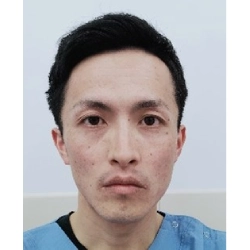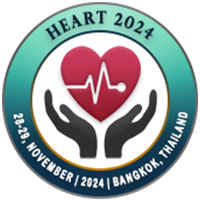
Tomohisa Takeichi
Clinical Engineering at Kitaharima medical center, JapanTitle: Effective case of systemic hyperkalemia cardiopulmonary bypass for incomplete aortic cross-clamping during endoscopic minimally invasive redo mitral valve replacement
Abstract
A 75-year-old man underwent redo-mitral valve replacement through a right mini-thoracotomy without rib spreading (redo-MICS MVR). Cold blood cardioplegia was performed via injection into the aortic root after cross-clamping the ascending aorta, and cardiac arrest was easily achieved. The left atrium opened, and removal of the artificial valve on the way, antegrade cardioplegia was performed again. Although trying to re-cross-clamp several times, aortic root pressure remained low. We attempted changing to retrograde cardioplegia, but the adhesion of the inferior vena cava was strong, so we considered it difficult. To deal with this incomplete aortic cross-clamping case, we performed safety high-risk redo-MICS MVR under systemic hyperkalemia combined with circulatory arrest without aortic cross-clamping. The total circulatory arrest time was 39 minutes. Cardiac arrest time and cardiopulmonary bypass time were 189 min and 325 min, respectively. The patient’s postoperative maximum creatine-kinase MB level was 24 ng/dL. The duration of mechanical ventilation and length of stay in the intensive care unit was 15 hours and 8 days, respectively. The postoperative course was uneventful and he was discharged.
Biography
Tomohisa Takeichi, a clinical engineer based in Japan, has dedicated a decade to specializing in cardiopulmonary bypass techniques. He is the innovator behind the Systemic Hyperkalemia Cardiopulmonary Bypass (Kitaharima method) designed for Minimally Invasive Cardiac Surgery (MICS) without aortic cross-clamp. The primary objective of this pioneering technique is to minimize complications to zero, offering a valuable approach to avoiding cardioplegia-related issues. In this case, involving incomplete aortic cross-clamping, the Systemic Hyperkalemia CPB has proven to be highly efficient.

